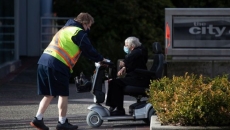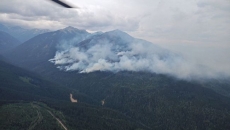In a victory for air travellers, the Supreme Court of Canada has upheld rules that bolster compensation for passengers subjected to delays and damaged luggage on international flights.
On Friday, the country's highest court unanimously dismissed an appeal by a group of airlines that challenged Canada's passenger rights charter. Air Canada, Porter Airlines Inc. and 16 foreign appellants had argued that the Air Passenger Protection Regulations launched in 2019 violate global standards and should be rendered invalid for trips into and out of the country.
The legal challenge, which kicked off that year, said that by imposing higher compensation requirements for lost baggage and late or cancelled flights abroad, the regulations exceeded the Canadian Transportation Agency’s authority and breached international rules known as the Montreal Convention.
In December 2022, the Federal Court of Appeal dismissed the carriers' case with the exception of one regulation that applies to the temporary loss of baggage.
The Canadian Transportation Agency and attorney general argued there is no clash between passenger protections and the Montreal Convention, a multilateral treaty signed by Canada in 2001.
On Friday, the Supreme Court effectively agreed, stating in a decision written by Justice Malcolm Rowe that the regulations "do not conflict with the Montreal Convention."
"In signing on to the convention and the 'protective reconciliation' between the interests of passengers and carriers that it engendered, there is no indication that Canada (or any other state party) agreed to forego its ability to provide for minimum standards of treatment for passengers within its jurisdiction," Rowe wrote.
In an emailed statement, Transport Minister Anita Anand said the top court "ruled in favour of passengers and our view that passengers need protection."
Jeff Morrison, president and CEO of the National Airlines Council of Canada, said the group was "disappointed" by the court's decision but that carriers would continue to work with industry players and government to reduce travel disruptions.
Under the federal rules, passengers must be compensated with up to $2,400 if they were denied boarding because a trip was overbooked — so-called flight bumping. Flights that are cancelled or significantly delayed for reasons within the airline's control — scheduling problems, for example, but not bad weather — warrant compensation of up to $1,000. Travellers can receive up to about $2,300 for lost or damaged baggage, though the exact number fluctuates based on exchange rates.
The airlines' argument that the regulations contravene the Montreal Convention rested on that agreement's "exclusivity principle." The convention states that any "action for damages" — a lawsuit seeking financial compensation, for example — relating to an international flight is subject exclusively to the conditions of the treaty, rather than any other set of rules.
However, the court found that while actions for damages are pursued case by case, Canada's passenger rights charter lays out a blanket approach and thus falls outside the Montreal Convention.
"The regulations do not provide for an 'action for damages' because they do not provide for individualized compensation; rather, they create a consumer protection scheme that operates in parallel with the Montreal Convention," Rowe wrote.
"Accordingly, they do not fall within the scope of the Montreal Convention’s exclusivity principle."
The appellants included the three biggest U.S. airlines, flagship carriers such as British Airways and Air France and the International Air Transport Association, which counts WestJet, Air Transat and about 290 other airlines as members.
Since the rules came into force five years ago, the government has taken further steps to tighten them, a move prompted by scenes of airport chaos, endless security lines and overflowing baggage halls in 2022 during a surge in air travel after COVID-19-related shutdowns.
In 2023, Liberal legislation targetted loopholes that have allowed airlines to avoid paying customers compensation and worked to establish a more streamlined complaints resolution system.
The new provisions also sought to ratchet up penalties via a $250,000 maximum fine for airline violations — a tenfold increase from the existing regulations — in an effort to encourage compliance.
Another amendment — both have yet to take effect — would place the regulatory cost of complaints on carriers’ shoulders. The measure would cost airlines $790 per complaint — amounting to millions of dollars per year — under a recent proposal from the regulator that aims to encourage them to brush up their service and thus reduce the number of grievances against them.
Meanwhile, the complaints backlog at the country’s transport regulator continues to mount, standing at about 78,000 as of last month.
Sylvie De Bellefeuille, a Quebec-based lawyer with advocacy group Option consommateurs, called the ruling "very good" for travellers.
“It confirms the power of the Canadian government to provide regulations that aims to protect passengers," she said, adding that the decision aligns with others handed down by European courts.
Air Passenger Rights president Gabor Lukacs, an intervener in the case, said the Supreme Court ruling "breathes new life" into the move to revamp the traveller protection regime.
However, the existing regulations fall short of the European Union's "gold standard of passenger protection," he added, calling for reforms that mirror EU rules. He and others also said the government has been dragging its feet on implementing the promised changes.
"It’s been over a year since the government promised changes to make the system better," said Canadian Automobile Association spokesman Ian Jack.
"We need to see those now, so the system isn’t just legal, it actually works for Canadians."






